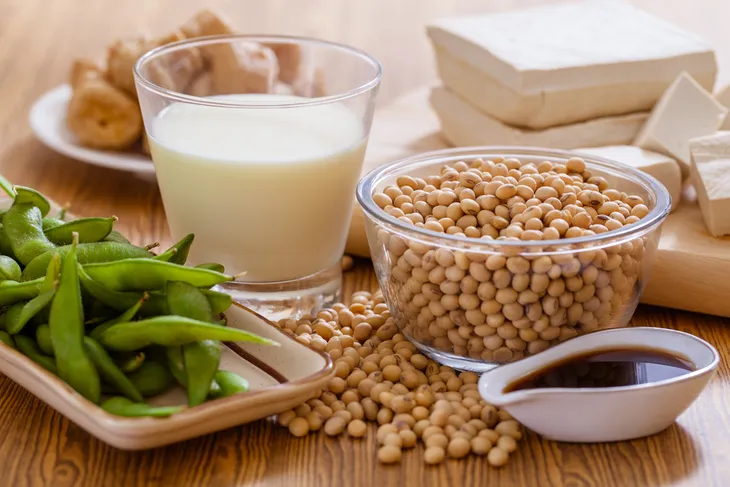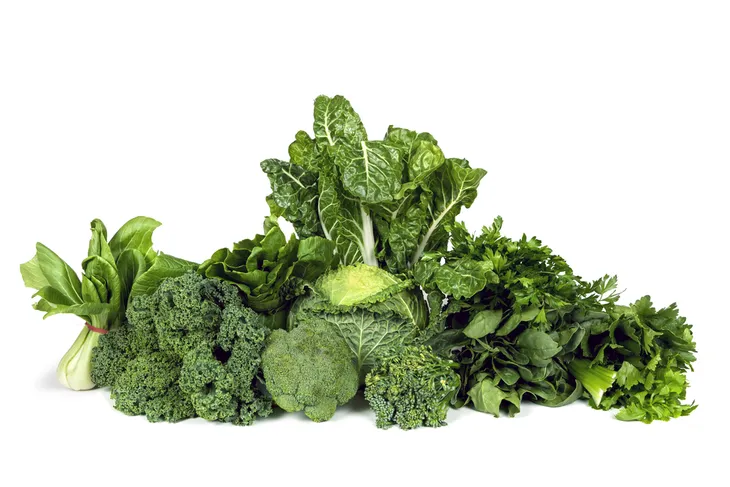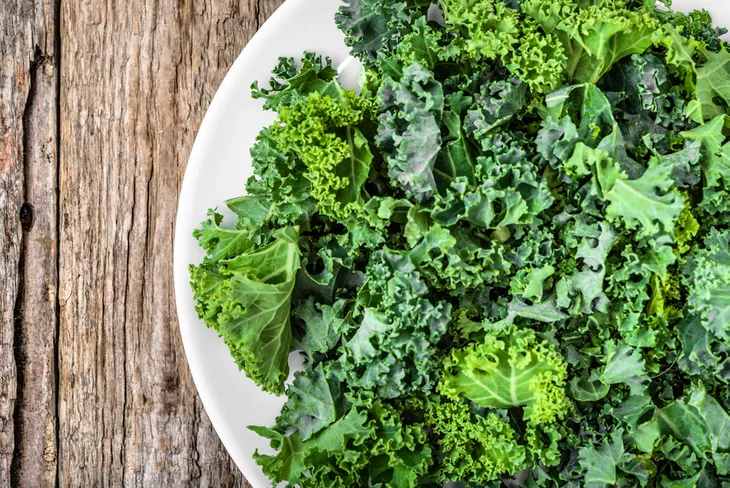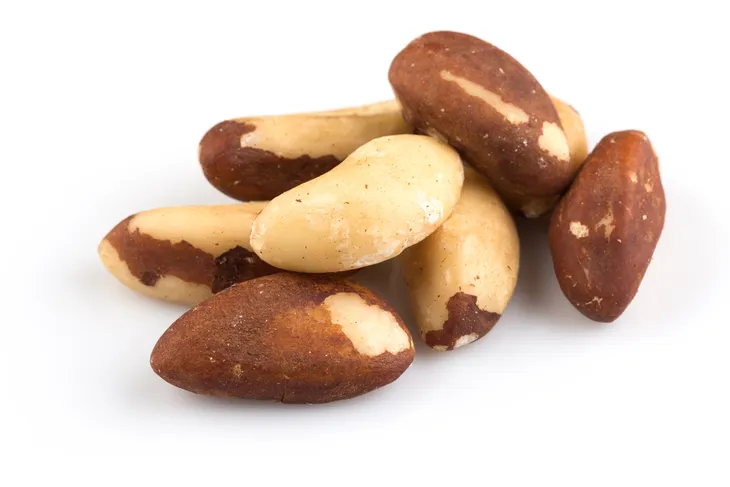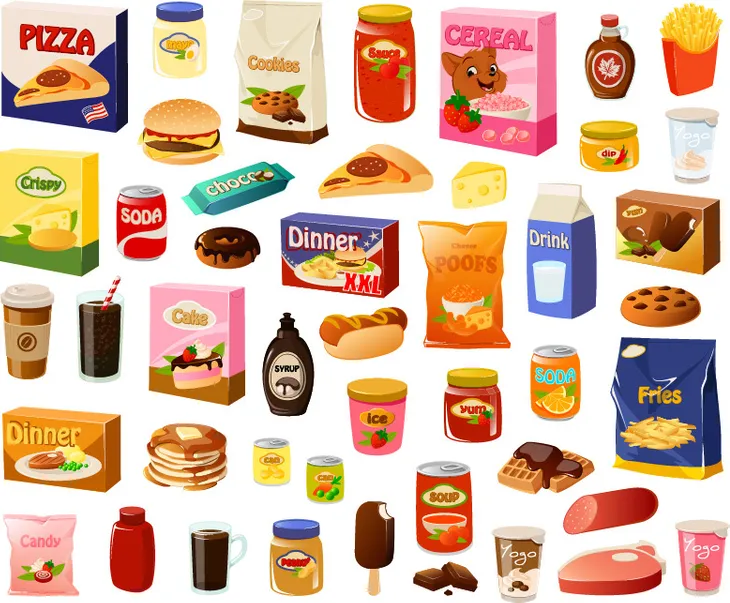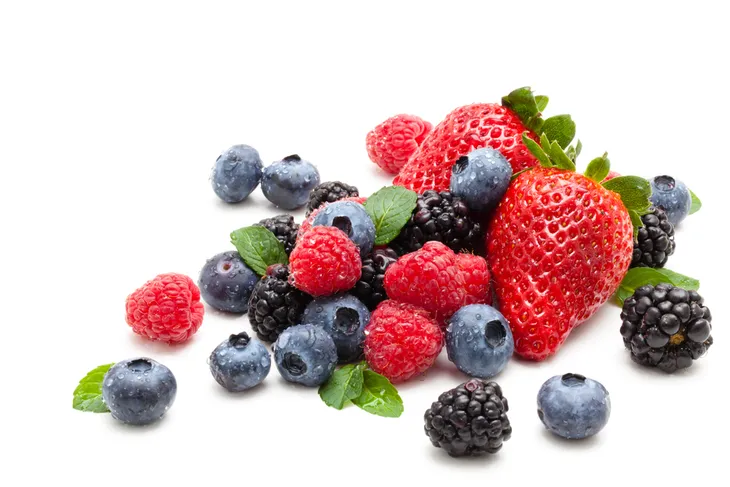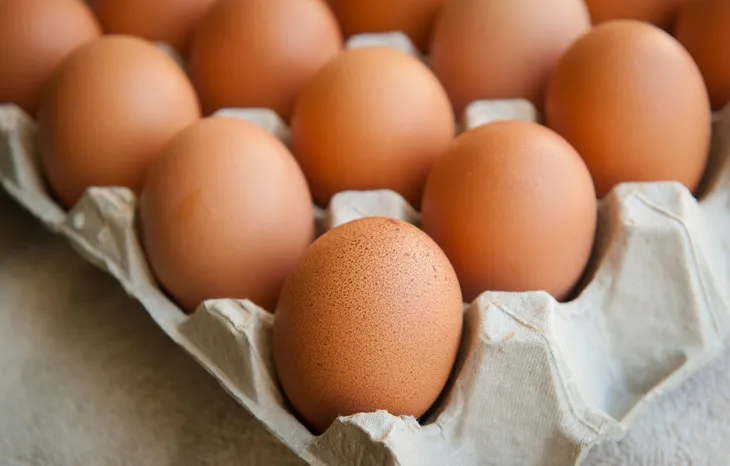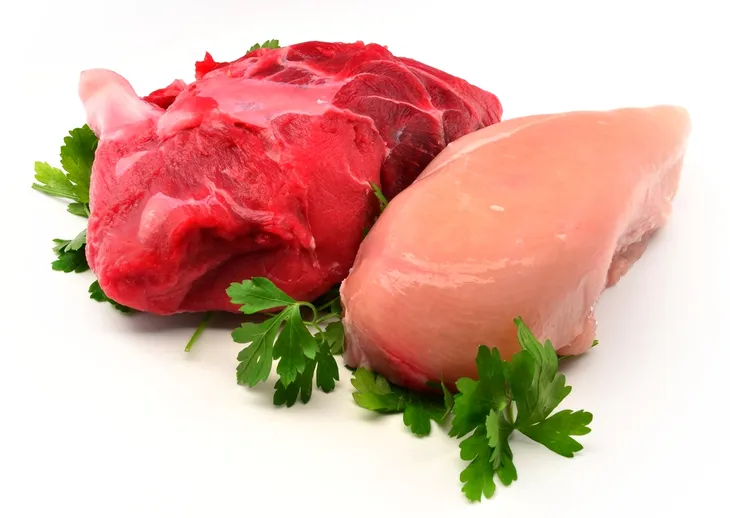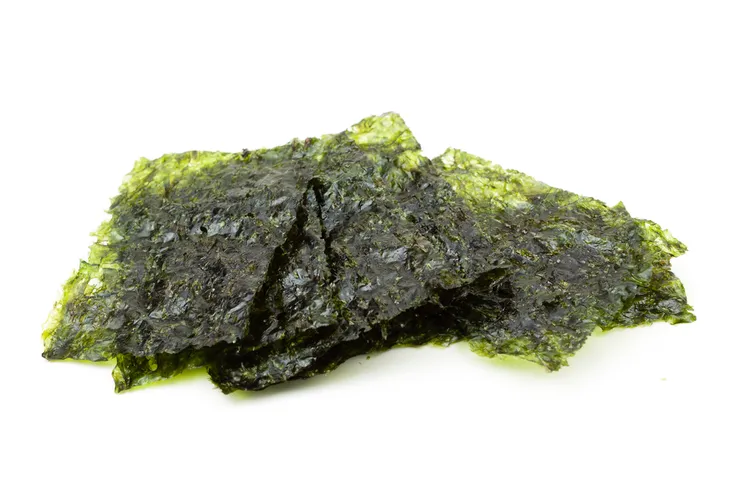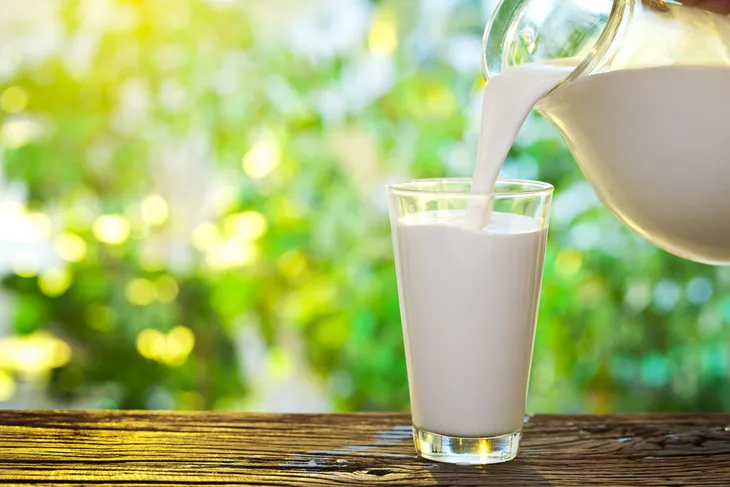Your thyroid is a small, butterfly-shaped gland located in your neck. This gland is responsible for several essential bodily functions, including regulating metabolism, mood, energy, heart rate, blood pressure, and body temperature. The thyroid regulates all of this by producing thyroid hormones.
However, when the thyroid is underactive (or produces too little hormones) regular function can suffer (i.e., weight fluctuation, fatigue, and depression). This is known as hypothyroidism. What many people don’t realize is that there are several foods out there that can both positively and negatively impact those with hypothyroidism, as well as those with normally working thyroids. Here are 15 nutrient-rich foods that impact thyroid health…
Seafood
You may love to gobble down shrimp and fish of all kinds, but did you know that seafood is high in iodine, a mineral that is vital to an efficiently functioning thyroid? The thyroid is the gland that manages metabolism and growth, so it has the potential to throw our whole body out of whack!
If you’re deficient in iodine, your thyroid may swell and you can become lethargic, fatigued, depressed, and void of energy. However, if you suffer from hyperthyroidism (when the gland makes too much thyroid hormone), a diet high in iodine can exacerbate the symptoms—including accelerated heart rate, heart palpitations, mood swings, tremors, and anxiety.
Speak with your dietitian before you eat an excess of seafood, especially if you’re taking iodine supplements as it can create a negative impact, says Julie Ching, registered dietitian.
Soy
There has been a bit of controversy over soy and whether it has a good or bad affect on the thyroid. According to research from the Mayo Clinic, soy and soy products (i.e., soy milk and edamame) are believed to interfere with the body’s ability to utilize synthetic thyroid hormone and product thyroid hormones (if you are being treated for hypothyroidism). However, studies are still inconclusive.
Unless you’re suffering from an iodine deficiency, soy is typically safe to eat and won’t mess with your thyroid’s ability to make thyroid hormones, but always check first with your doctor. Typically, an all or nothing mentality when it comes to food (total food group exclusion) tends to rob us of healthy, nutritious foods in our diets.
Leafy Greens
Magnesium largely impacts several major body processes—including the thyroid’s function. In fact, the mineral is necessary for thyroid function (making thyroid hormone) in particular. If you’re not getting adequate magnesium, you may suffer low energy, heartbeat irregularities, and muscle cramps and painful spasms.
Luckily, leafy greens are a powerful source of magnesium and incorporating daily doses of spinach, Swiss Chard, and leafy lettuces into your diet will ensure a well functioning thyroid gland.
Kale
You might consider kale among the family of leafy greens (as mentioned in the previous slide), but this green superfood is a high source of goitrogen, a substance that interferes with iodine uptake and suppresses thyroid function. This means it may hinder the thyroid’s production of hormones necessary for regulating metabolism.
Goitrogen-rich foods (i.e., kale, broccoli, Brussel sprouts) can be perfectly fine if you are getting adequate iodine in your diet, but if you suffer from iodine deficiency (or suffer from hypothyroidism) eating foods like kale can cause metabolism and energy issues.
Organ Meats
For many, organ meats (i.e., liver, heart, and kidney) might not sound very appetizing. However, if you’re like my father, you can’t stay away from fatty-acid rich meats. Organ meats are all high in a type of fatty acid, known as lipoic acid. And unfortunately, lipoic acid can cause thyroid function disturbances, such as lowering levels of thyroid hormone.
According to the University of Maryland Medical Center, also keep in mind that your doctor may ask you to steer clear of foods high in lipoic acid because they’ve been linked to interfering with certain thyroid medications (i.e., Levothyroxine).
Salt
The thyroid needs iodine to function properly and a very well known source of iodine is salt. Luckily, most North Americans get plenty of salt in their daily diets (i.e., iodized table salt), so an iodine deficiency is extremely rare.
Nuts
We’ve already established that magnesium is vital to healthy thyroid function. This means that if you’re nuts for nuts—including almonds, cashews, Brazil nuts, and even pumpkin seeds—your thyroid will thank you.
Unlike the aforementioned almonds, cashews, and pumpkin seeds, which are by themselves a rich source of magnesium, Brazil nuts give you double the thyroid-powering benefits of magnesium and selenium, a mineral that boosts the thyroid as well as the immune system.
Processed Foods
Not surprisingly, processed foods are one of the worst things we could feed our body, especially when it comes to thyroid health. According to Mira Ilic, RD, a registered dietician at the Cleveland Clinic, the manufacturers who make these products, don’t have to use iodized salt. In fact, the National Institutes of Health’s Office of Dietary Supplements says they “almost never” do.
Processed foods are so high in salt, that Health.com writes “75% of our dietary sodium intake comes from restaurant, pre-packaged, and processed fare.” In fact, a lot of the time we don’t even realize how much salt we’re consuming when we eat these kinds of food. Always be wary of processed foods!
Berries
Berries are one of the best fruits for us because they are full of antioxidants! It’s important to feed our thyroid foods that include more than just iodine, selenium, or vitamin D, says Mira Ilic, RD to Health.com. Things like antioxidants are just as important when it comes to thyroid health.
A 2010 study in the Nutrition Journal found that berries have an exceptionally high antioxidant value. After testing more than 3,000 foods, beverages, spices, herbs, and supplements, they concluded that dried wild bilberries, wild strawberries, blueberries, goji berries, sea buckthorn, and cranberries were among several samples with the highest antioxidant levels.
Eggs
Are you a big breakfast person? If so, we have good news! Eggs are great for the thyroid because they contain a healthy dose of iodine and selenium. “One large egg contains about 16% of the iodine and 20% of the selenium you need for the day, making them a thyroid superfood,” says Health.com. Forget about only eating the egg whites because Mira Ilic, RD, warns that most of the nutrients are in the yolk.
Fish
This slide could fit in with seafood in general, but since it’s such a good source of iodine we figured we’d give it it’s own slide! If you don’t take our word for it, look into the studies that show people who live in remote, mountainous regions out of reach from the sea are more likely to develop goiters. “The most convincing evidence we have [for thyroid problems] is the absence of adequate nutrition,” says Salvatore Caruana, MD, the director of the division of head and neck surgery in the department of otolaryngology-head and neck surgery at ColumbiaDoctors, to Health.com.
Chicken and Beef
We’ve heard a lot about iodine thus far in this article, so let’s focus on something different — zinc. Health.com points out that zinc is also extremely important for our thyroid health because our body needs it to produce TH. Similar to iodine, a diet that is lacking zinc could lead to hypothyroidism. “If you develop hypothyroidism, you can also become deficient in zinc, since your thyroid hormones help absorb the mineral,” says Health.com.
A zinc deficiency is pretty rare, but it can happen to people with a poor diet or those suffering from a disorder that interferes with their ability to absorb zinc. So how do we make sure we get enough zinc? Chicken and beef are the best sources as one ounce of beef contains 3 milligrams and 3 ounces of dark chicken contains 2.4 milligrams.
Seaweed
As previously mentioned, iodine is extremely important for our thyroid. It is what the thyroid needs to function properly and produce enough TH. A person who isn’t getting enough iodine is at risk for developing hypothyroidism or a goiter (which is when the thyroid gland becomes enlarged and swollen).
Many people get their iodine through table salt, but seaweed is another great source. However, it’s important to note that it all varies greatly. The National Institutes of Health states that 1-gram of seaweed can contain anywhere from 11 to 1,989-percent of the daily value. Despite its benefits, there is such a thing as too much iodine, so Health.com advises people to monitor their consumption. Instead of eating seaweed everyday, Cynthia Sass, MPH, RD, a contributing nutrition editor for the site suggests people consume one fresh seaweed salad a week.
Milk
According to a 2008 study by the Food and Drug Administration, most of the iodine consumed by the average American comes from dairy products. However, our dairy consumption in general has been declining ever since the 1970s because people are drinking less milk. The researchers found there’s been a 60-gallon drop between 1970 and 2012.
“By drinking 1-cup of low-fat milk, you’ll consume about one-third of your daily iodine needs. Another good idea: Opt for a glass that’s been fortified with vitamin D,” writes Health.com. If you’re not a huge fan of milk, cheddar cheese is another great option.


